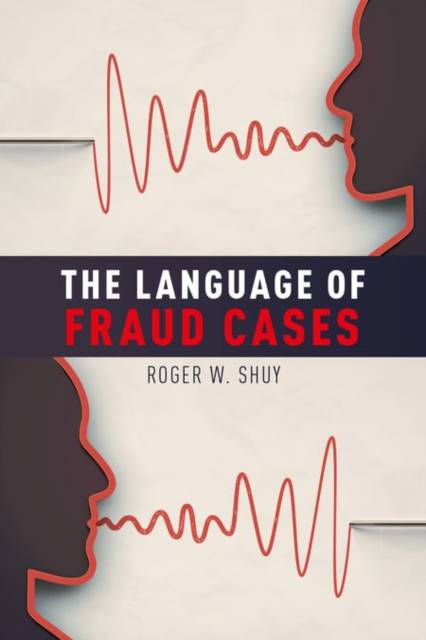
- Afhalen na 1 uur in een winkel met voorraad
- Gratis thuislevering in België vanaf € 30
- Ruim aanbod met 7 miljoen producten
- Afhalen na 1 uur in een winkel met voorraad
- Gratis thuislevering in België vanaf € 30
- Ruim aanbod met 7 miljoen producten
Zoeken
Omschrijving
In The Language of Fraud Cases, Roger Shuy follows the now well-established format of his previous volumes on language and law. He discusses here eight cases that he himself has consulted on, and that illustrate how linguistics can help to solve the various problems that arise in trying to define fraudulent language in the context of law. He examines speech events, schemas, agendas, speech acts, conversational strategies, as well as smaller language units such as sentences, phrases, words, and sounds, and discusses how these can play a major role in deciding fraud cases. The cases chosen for this volume hinge on recorded language evidence, making them particularly relevant for linguistic analysis, and include cases of government contracts, EPA regulations, foreign corrupt business practices, trade secrets, money laundering, securities trading, art theft, and price fixing. Through his examination of these cases, Shuy demonstrates the significant contribution of linguistic analytical methodology to the understanding of language evidence and its success in revealing willful uses of fraudulent language to achieve financial gain.
Specificaties
Betrokkenen
- Auteur(s):
- Uitgeverij:
Inhoud
- Aantal bladzijden:
- 310
- Taal:
- Engels
Eigenschappen
- Productcode (EAN):
- 9780190270643
- Verschijningsdatum:
- 17/12/2015
- Uitvoering:
- Hardcover
- Formaat:
- Genaaid
- Afmetingen:
- 142 mm x 211 mm
- Gewicht:
- 385 g

Alleen bij Standaard Boekhandel
+ 660 punten op je klantenkaart van Standaard Boekhandel
Beoordelingen
We publiceren alleen reviews die voldoen aan de voorwaarden voor reviews. Bekijk onze voorwaarden voor reviews.











